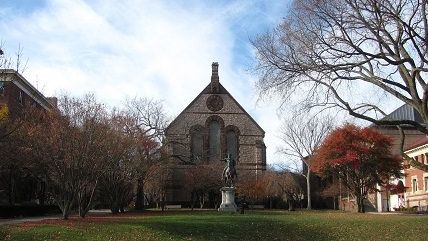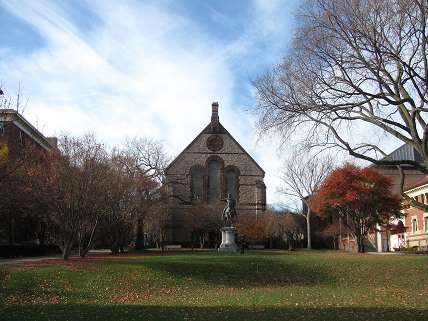Brown U. Botched a Rape Case So Badly That Both Sides Called Bullshit
None of the four students involved in this investigation believe it was handled fairly and with respect for due process.


Read the details of this Inside Higher Ed story about a sexual assault and drugging investigation at Brown University and tell me with a straight face that colleges and universities can be trusted to decide criminal matters. Try it, I dare you:
Students at Brown University are raising questions about an investigation and hearings involving a reported drugging and sexual assault on campus last fall.
Neither of the accused students -- one man accused of the drugging, and a different man accused of assault -- was found guilty.
Supporters of the two women involved called the investigation "haphazard" and said the university's hearing process was deeply flawed.
The student accused of drugging the women says he's innocent. But he, too, said the process was unfair for all involved and that the university's investigation was "incompetent."
It's hard not to agree with them. Two female students attended a party at Brown's Phi Kappa Psi chapter in October; they shared a single drink, which was mixed for them by a fraternity member. The drink quickly overwhelmed them; they later came to suspect that it had contained a date rape drug. One of the women claimed she was raped by a non-fraternity member after she left the party. The girls reported the incident, volunteering urine and hair samples to determine whether their drink had been spiked.
How well did the university handle the toxicology test? Not very. Initial results held that the girls did indeed have increased levels of a date-rape intoxicant in their system. But the fraternity brother who mixed the drink hired a medical expert to conduct a second review, which raised questions about the first test's accuracy. Brown then conducted a third test, overturned its initial findings, and dropped the case. Internal university emails obtained by Inside Higher Ed recorded considerable confusion about the laboratory testing procedures. Even though he was cleared, the Phi Psi student reported that he didn't blame the women for feeling mistreated by the process. "Brown didn't do their due diligence," he said.
The university's prosecution of a different student for raping one of the two women was fraught with other issues. The accused student was informed of the charges against him just nine days before the hearing, which was scheduled for the same date as a final exam. The university denied his request to move it. Brown also rejected his complaint that the staff member assigned to lead the adjudicating panel—a chair of the university's gender studies program—was biased against him. Nevertheless, he was found innocent.
His accuser, for her part, contends that he received special treatment because his father was an important alum and donor. He had lawyers to help him; the women did not.
None of the four students involved in this investigation believe it was handled fairly and with respect for due process. And they're all right. As I've noted before, college rape trials are unfair to men and women. Whatever the faults of the criminal justice system, it is nevertheless the case that rape is too serious a matter to be left in the hands of academics.
Unfortunately, colleges will continue to feel obligated to play games with students' futures as along as bureaucrats at the federal government's Office for Civil Rights remain unconstrained.


Show Comments (156)